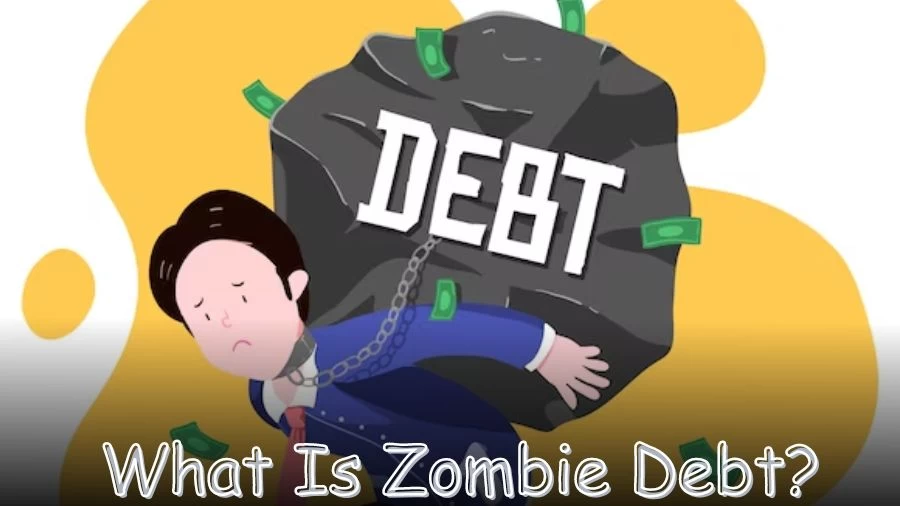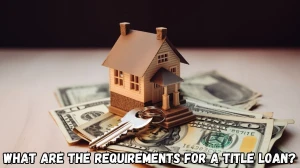
What is Zombie Debt? How Zombie Debt Works? How to Buy Zombie Debt?
Zombie debt refers to old debts that have typically been forgotten or surpassed the statute of limitations for legal collection, yet debt collectors may still attempt to collect on them.
by Kowsalya
Updated Aug 18, 2023
On This Page
- What is Zombie Debt?
- How Zombie Debt Works?
- How to Buy Zombie Debt?
- What to Do If You Are Contacted About Zombie Debt
- How to Protect Yourself From Zombie Debt?
- What is an Example of a Zombie Debt?
- What is the Duration Before a Debt is Considered Forgiven?
- What is the Process for Eliminating Zombie Debt?
- What Are the Advantages and Disadvantages of Zombie Debt?
- What is the Reason for Me Being Targeted by Zombie Debt?
What is Zombie Debt?
Zombie debt refers to debts that have been removed from your credit report due to the passage of time or other reasons. These debts are often considered unrecoverable and have typically been disregarded by both creditors and borrowers. However, zombie debt can unexpectedly resurface when debt collectors make efforts to collect on these debts, even though the legal window for pursuing the debt has already closed.
Zombie debt emerges when the statute of limitations for debt collection has expired. Despite this expiration, debt collection agencies might still endeavor to reclaim these debts, metaphorically resurrecting them from their dormant state.
It's crucial to note that individuals are not legally obligated to repay zombie debt, as it falls outside the timeframe for legitimate collection efforts. Despite this, debt collectors can resort to aggressive and ethically questionable tactics in their endeavors to coerce individuals into making payments on these debts. This persistence can lead to undue stress and confusion for the borrowers involved.
How Zombie Debt Works?
Zombie debt pertains to debts that have aged beyond a span of three years. These debts might have been neglected, resolved, or potentially attributed to someone else. Such situations can arise from instances of identity theft, computational errors, or even fraudulent endeavors to demand repayment for debts that are non-existent.
Typically, the original creditor would have relinquished efforts to recover the debt and subsequently sold it to a debt collection agency. Unfortunately, these agencies are often known for their less-than-scrupulous practices, frequently resorting to persistent and intimidating phone calls in their pursuit.
In terms of legal limitations, the statute governs the duration during which lenders can endeavor to collect a debt, which generally spans three to six years across most states, and can be even shorter in some instances.
It's important to recognize that while the debt remains technically valid even beyond the statute of limitations, individuals are not legally bound to repay it. However, the entities purchasing uncollectible debts operate on a calculated strategy. They rely on a small percentage of individuals repaying their debts to ensure profitability.
Individuals navigating these circumstances must exercise caution. There is no inherent advantage in settling a debt that has surpassed the statute of limitations, as any payment made could reset the limitation timeline, reintroduce the debt onto the credit report, and potentially grant the debt collector the ability to initiate legal actions.
It's crucial for individuals to be well-informed about their rights and options when confronted with attempts to collect zombie debt, especially given the intricacies of debt collection laws and their potential implications on credit reports and legal proceedings.
How to Buy Zombie Debt?
- Locate Your Shipment: Begin by identifying the whereabouts of your package. This step involves accessing information related to the shipment you are expecting.
- Transfer Bitcoin to the Provided Wallet Address: Proceed to make a Bitcoin transaction by sending the required amount to the wallet address provided. This action will facilitate the completion of your transaction and associated procedures.
- Leave a Message on this Page Containing Details about Your Ordered Package and the Designated Email Address for Account Delivery: Share relevant information about the package you have ordered on this webpage. This message should include specifics about the package itself. Additionally, provide the email address where you wish to receive the associated account details.
This process outlines the sequence of actions required to effectively engage with the provided instructions. It involves finding information about the shipment, executing a Bitcoin transfer, and communicating necessary package details and delivery preferences via the specified web page. This ensures a comprehensive and transparent process for users to follow when interacting with the given instructions.
What to Do If You Are Contacted About Zombie Debt
To safeguard themselves from potential harassment, debtors have recourse to the protections afforded by the Fair Debt Collection Practices Act (FDCPA). This particular legislation is designed to curtail the behavior and practices of third-party debt collectors, imposing constraints on the manner and frequency of their interactions with debtors, including the permissible hours for contact and the frequency of communication attempts.
An essential guideline to bear in mind is to minimize the duration of telephone conversations with debt collectors. Instead, it's advisable to promptly request their official address and subsequently dispatch a certified letter within 35 days of the initial contact. Within this letter, it is recommended to challenge the validity of the debt and request substantive evidence demonstrating its legitimacy.
Should the debtor continue to experience communication from the debt collection agency, it is prudent to compose another letter, clearly articulating that any future contact must exclusively occur in writing or through legal channels if litigation is being pursued. It's worth noting that if the debt in question has surpassed the statute of limitations, the likelihood of the collector pursuing further action diminishes significantly.
By engaging in these actions, debtors can actively assert their rights and establish boundaries, leveraging the legal provisions of the FDCPA to mitigate the potential for harassment. This measured approach empowers debtors to navigate debt-related interactions more confidently, ensuring that they are well informed about their rights and equipped to address such situations effectively.
How to Protect Yourself From Zombie Debt?
Protecting yourself from zombie debt involves being well-versed in the applicable laws and conducting thorough research. When you have a clear understanding of your rights, it becomes easier to detect potential scams. Follow these step-by-step actions to effectively fend off debt scavengers:
Step 1: Research the Debt Begin by identifying the origin of the debt and the entity responsible for it. It's crucial to ascertain whether the debt truly belongs to you. If you find the charge unfamiliar and lack any records of it, there's a possibility that you've been contacted in error.
Step 2: Request a Debt Validation Letter When uncertain about the debt's authenticity, ask the creditor for a validation notice. This document should detail the debt's amount, the original creditor's identity, and the debt's date of origin. Compare this information with your own records to verify if the debt is indeed yours. If not, send a dispute letter to the creditor.
Step 3: Decide on Your Course of Action If you have already settled the debt, send a dispute letter to the creditor, indicating that the debt has been paid. In order to validate the debt, the collector must provide proof of its legitimacy. However, they are likely to cease contact if they lack adequate proof. Additionally, if the debt is listed on your credit report, initiate a direct dispute with the three major credit bureaus: TransUnion, Experian, and Equifax. If the debt isn't yours or is invalid, follow a similar protocol. Request the debt collector to furnish verification of the debt. Should they persist in contacting you, send a letter requesting them to cease communication.
Step 4: Managing Payment Scenarios
a) If You Owe and Can Pay: Begin by understanding your rights as outlined in the Fair Debt Collection Practices Act (FDCPA). If the debt remains listed, consider negotiating with the creditor to settle for an amount less than the total owed. Obtain written confirmation that the creditor won't sue for the remaining balance. Repay the debt promptly and assess its impact on your credit.
b) If You Owe and Can't Pay: If paying the full amount isn't feasible, explore various options. Negotiate a reduced payment or a suitable payment plan with the debt collector. If immediate payment isn't viable, understand that this approach could negatively impact your credit score. As a last resort, consider filing for bankruptcy, which can relieve you of debt obligations.
Step 5: Document Correspondence Maintain a written record of all interactions with the debt collector. This documentation serves as crucial evidence if you need to pursue legal action.
Step 6: Request Cessation of Contact Under the Fair Debt Collection Practices Act (FDCPA), you have the right to instruct a zombie-debt collector to halt communication. To exercise this right, send a certified letter with a return receipt to the collector, ensuring confirmation of receipt. If you require assistance drafting the letter, refer to sample letters provided by the Consumer Financial Protection Bureau (CFPB).
Step 7: Avoid Sharing Information or Admitting to the Debt If the zombie debt is absent from your credit report, consider refraining from making payments or acknowledging ownership. Remember, in some states, acknowledging the debt or making payments could establish legal responsibility for the debt.
By following these step-by-step actions, you can navigate situations involving zombie debt with confidence and awareness of your rights, making informed decisions to protect yourself from potential exploitation.
What is an Example of a Zombie Debt?
Examples of zombie debts encompass the following scenarios:
- Identity Theft: Debt that doesn't belong to you, often resulting from cases of identity theft.
- Debt Not on Credit Report: Debts that are no longer present on your credit report.
- Discharged Debt from Bankruptcy: Debts that were discharged as a consequence of a bankruptcy filing.
- Debt Beyond Statute of Limitations: Debts that have exceeded the legal statute of limitations for collection.
To safeguard yourself from interactions with zombie collectors, you can take the following steps:
- Step 1: Request Documentation When contacted about a debt, request comprehensive documentation that validates the debt's authenticity and ownership.
- Step 2: Avoid Speaking to Callers Refrain from engaging in conversations with individuals who call you regarding debts. Communicating may inadvertently acknowledge ownership.
- Step 3: Do Not Admit Ownership Resist admitting ownership of the debt, especially if you are uncertain about its legitimacy.
- Step 4: Delay Payment Refrain from making any payments until you have definitively established that the debt is genuinely yours.
- Step 5: Understand the Statute of Limitations Familiarize yourself with the concept of the statute of limitations for debt collection in your region. This knowledge will help you ascertain whether the debt is still legally enforceable.
By following these step-by-step actions, you can effectively shield yourself from potential encounters with zombie collectors and make informed decisions about how to handle situations involving uncertain or old debts.
What is the Duration Before a Debt is Considered Forgiven?
During that period, certain second mortgages were declared as "charged off," indicating that the creditor had ceased their pursuit of repayment. However, this didn't equate to debt forgiveness, despite the misconception held by many homeowners. Some of these individuals seemed to misinterpret the structure of 80/20 loans.
Other borrowers encountered difficulties while attempting to obtain information about their second loans. In the Miami region, Carlos Mendez and his wife, Lisset Garcia, entered into a modification agreement for their first mortgage in 2012 after experiencing financial hardships that led to missed payments and a bankruptcy filing. The couple had acquired their home in Hialeah in 2006, shortly after their arrival from Cuba, and raised their two daughters there.
Mendez shared that their attempts to acquire clarity regarding the status of their second mortgage from the bank proved futile, eventually resulting in the indication that the debt was being canceled, or would be canceled. Unexpectedly, in 2020, they received foreclosure documentation from a different entity that owned the debt.
Their legal representative, Ricardo M. Corona, explained that they have been informed of an outstanding amount of $70,000 in overdue payments in addition to $47,000 in principal. However, Corona stated that records indicate the loan had been charged off in 2013 and argued that the loan holders lack the right to demand interest payments for the years when the couple did not receive periodic statements. The case is presently unresolved.
The trading and repackaging of second loans that occurred, sometimes undergoing multiple transactions. The entities initiating legal actions to recover these funds are frequently investors who acquire distressed mortgage loans at substantial discounts, as pointed out by advocates. Many of these debt purchasers are structured as limited liability companies and lack the same regulatory oversight as major banks.
In a specific instance, involving the Mendez and Garcia household, the plaintiff is listed as Wilmington Savings Fund Society, FSB, but acting solely as a trustee for BCMB1 Trust, rather than in an individual capacity. Wilmington's spokesperson indicated that they act as trustees for numerous trusts and don't possess authority over the real estate management in the portfolio. Despite efforts, attempts to reach individuals associated with BCMB1 Trust for clarification were unsuccessful.
In certain cases, individuals facing foreclosure have initiated their own legal actions citing federal mandates pertaining to periodic statements or other consumer protection laws. One instance in Georgia involved a woman confronting foreclosure who contended in federal court that she had not received required periodic notices about her second mortgage or notifications upon its transfer to new owners, as mandated by federal law. This case was ultimately settled in June, with the terms remaining confidential, according to court records.
What is the Process for Eliminating Zombie Debt?
In New York, Prophete is one of the 13 individuals filing a federal lawsuit asserting that mortgage debt is being pursued beyond the state's six-year statute of limitations, resulting in breaches of both federal and state regulations.
What adds to the gravity of the situation is that these homeowners had diligently strived to bring their loans up to date. As Rachel Geballe, Deputy Director at Brooklyn Legal Services, which is jointly litigating the case with The Legal Aid Society, pointed out, "They thought they were taking care of their debt."
Among the defendants in this case are the loan servicing entity SN Servicing and the law firm Richland and Falkowski. This law firm represented mortgage trusts associated with the legal actions, including BCMB1 Trust, as outlined in the formal complaint. The defendants, in their court submissions, contest the plaintiff's interpretation of the statute of limitations, assert the propriety of their actions, and are actively seeking the dismissal of the lawsuit.
In a letter addressed to the judge, attorney Daniel Richland expressed, "The allegations in the various mortgage foreclosure actions are truthful and not misleading or deceptive." In contrast, Richland argues that the plaintiff's claims are implausible and thus merit dismissal.
What Are the Advantages and Disadvantages of Zombie Debt?
Advantages of Zombie Debt:
- Debt Elimination: In some cases, zombie debt might offer individuals an opportunity to resolve their old debts for significantly less than the original amount owed. Debt collectors who purchase these debts often do so at a fraction of the face value, which could lead to negotiated settlements that are affordable for debtors.
- Improved Credit Score: If the debt has already been removed from your credit report due to its age, negotiating a settlement or paying a reduced amount could potentially prevent the debt from reappearing on your credit report. This could help improve your credit score over time.
Disadvantages of Zombie Debt:
- Debt Collection Efforts: Despite the potential advantages, dealing with zombie debt can be distressing. Debt collectors might employ aggressive and persistent tactics to collect on these debts, causing stress and anxiety for debtors.
- Legal Implications: If debt collectors are unable to collect on the debt, they might resort to legal actions, such as filing lawsuits against debtors. This could lead to court judgments and wage garnishments, further complicating the debtor's financial situation.
- Restarting the Clock: Making a payment or even acknowledging the debt could potentially restart the statute of limitations, giving debt collectors more time to pursue the debt legally. This can put debtors at a disadvantage, especially if they were close to the end of the original limitations period.
- Impact on Credit: While settling the debt might seem like a relief, the process of negotiating and settling could impact your credit score. Additionally, any new payment activity could potentially be reported to credit bureaus, affecting your credit report.
What is the Reason for Me Being Targeted by Zombie Debt?
Zombie debt can resurface from your financial history under various circumstances. These instances are often triggered by errors in record-keeping and also arise from efforts to recover aged debts. These scenarios can include:
- Creditors inadvertently sell debts to collectors, which may unintentionally encompass debts that have already been settled.
- Debt collectors are pursuing old debts that might have surpassed the statute of limitations for collection.
It's crucial to understand that debt that has exceeded the legal statute of limitations cannot be the basis of a lawsuit. However, it's important to recognize that the duration of these limitations might not always align with your expectations. For instance, debt collectors could potentially use a payment made under duress to argue for resetting the statute of limitations pertaining to your debt. Thus, accurately tracking the most recent payments towards your debt is vital to accurately calculate this timeline.
Certain collectors might attempt to manipulate you into restarting payments with the intention of reclaiming old debts. This can manifest in various ways, such as offering to halt harassment in exchange for a small payment or falsely claiming that the debt won't appear on your credit report if you make a payment. It's noteworthy that while some zombie debts may no longer be eligible for legal action to collect, creditors may still retain the ability to seek payment from you.
What is Zombie Debt-FAQs
1. What is zombie debt?
Zombie debt refers to old debts that have often been forgotten, written off, or passed beyond the statute of limitations for legal collection. Despite their expired legal status, these debts can resurface when debt collectors attempt to collect on them.
2. How do debts become "zombie" debts?
Debts can become "zombie" debts when they have not been paid or addressed for a long time. This can occur due to various reasons, such as the debt being charged off by the original creditor, changes in ownership, or the debtor's lack of awareness about the debt.
3. Can zombie debts still be legally collected?
While zombie debts may have passed the statute of limitations for legal collection, debt collectors can still attempt to collect on them.
4. Can zombie debt affect my credit score?
Zombie debt can potentially impact your credit score. If a debt collector successfully reports the debt to credit bureaus, it might negatively affect your credit report.
5. How can I protect myself from zombie debt collectors?
To protect yourself from zombie debt collectors, follow these steps:
- Request written documentation of the debt's validity.
- Avoid admitting ownership of the debt during conversations.




